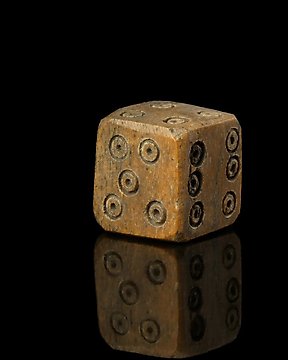
Ókori római Csont Légiós játékkockák (Nincs minimálár)
Nr. 83846121

Nr. 83846121

Due to custom regulations we can not ship outside the E.U. Please make sure you have an EU shipping address before bidding.
Bracelet and earrings with Roman blue and turquoise glass beads. The authentic Roman beads are restrung with modern materials and fittings.
Bracelet length: ± 17 cm
Diameter beads: ± 8,3 mm maximum
Earrings length: ± 43,7 mm
Diameter beads: ± 5 mm (spacer beads)
Good condition and wearable. Restrung with ancient beads, professional new materials and decorative spacer beads. All metal spacer beads, fastenings, etc. are new (gold-plated). Signs of wear consistent with age and use.
Certificate of Authenticity available upon request (pdf-document).
Ancient/Roman beads:
All authentic ancient beads are slightly different in shape or colour shade and show different signs of wear or iridescence. This adds to the charm of each piece and makes every composition unique.
ANCIENT GLASS
Glass has always been found in nature, but the humans first created glass about 4.000 years ago. when ancient craftsmen in Mesopotamia discovered the art of mixing sand, soda and lime to make glass.
For centuries, glass was a luxury item and reserved for the upper classes.
Glassmaking centers around the Mediterranean world experimented with new techniques (casting, core-forming, mosaic glass) and with colours by adding metallic oxides (cobalt, copper, etc) to the mixture.
The Romans learned the glass-making craft after the conquest of Egypt in the 1st century BC. During the 1st century AD the glassblowing technique revolutionized the production and made it possible to produce larger quantities. By adding manganese dioxide Roman glassmakers successfully produced colourless or ‘aqua’ glass for the first time.
Roman glass became a very popular material, used for beads, glass windows, mosaic tiles, tableware pieces etc. Roman glass was traded all over the Roman Empire and far beyond to Central Africa, Scandinavia and via the Silk Route to China.
Hogyan vásárolhatok a Catawiki-n?
1. Fedezzen fel valami különlegeset
2. Tegye meg a legmagasabb licitet
3. Fizessen a biztonságos és védett rendszert használva